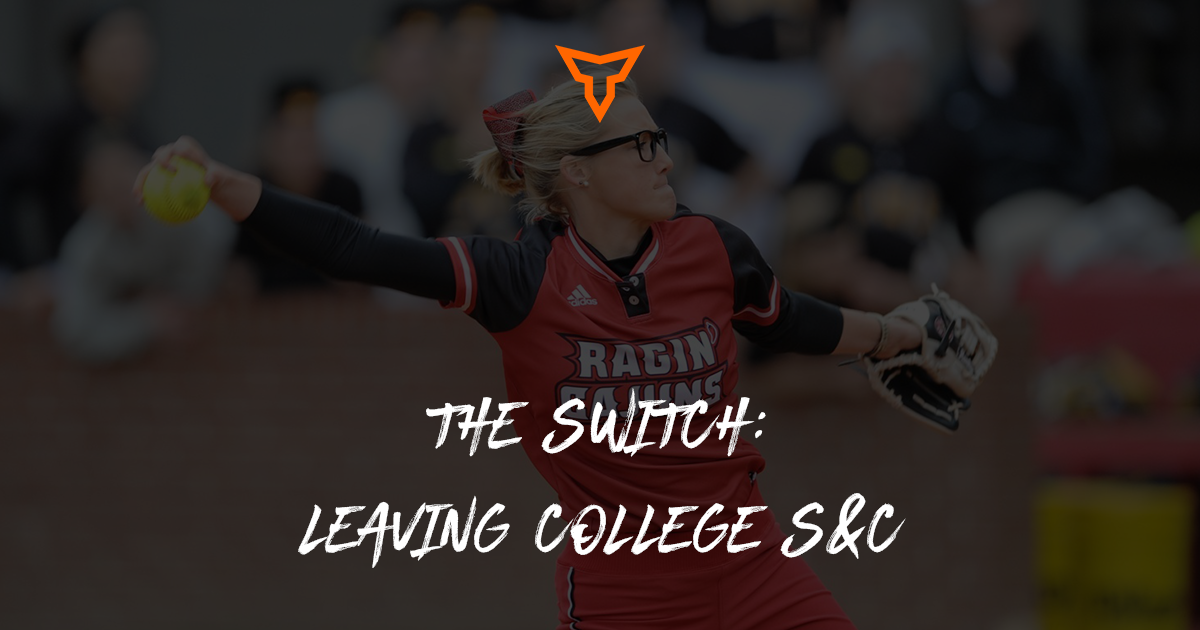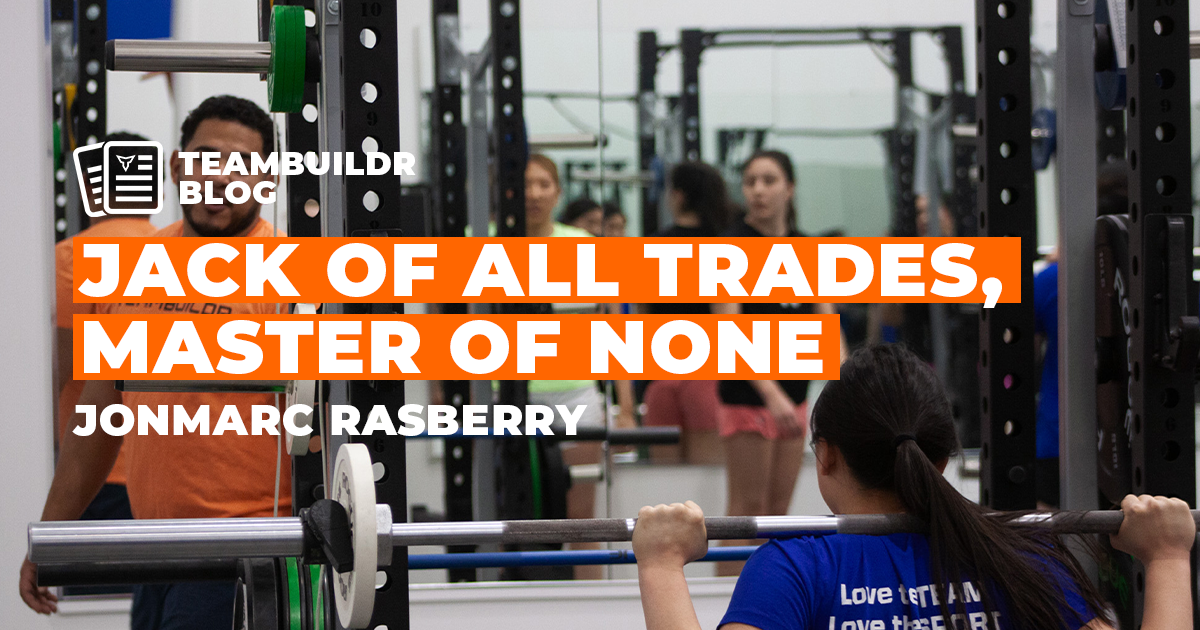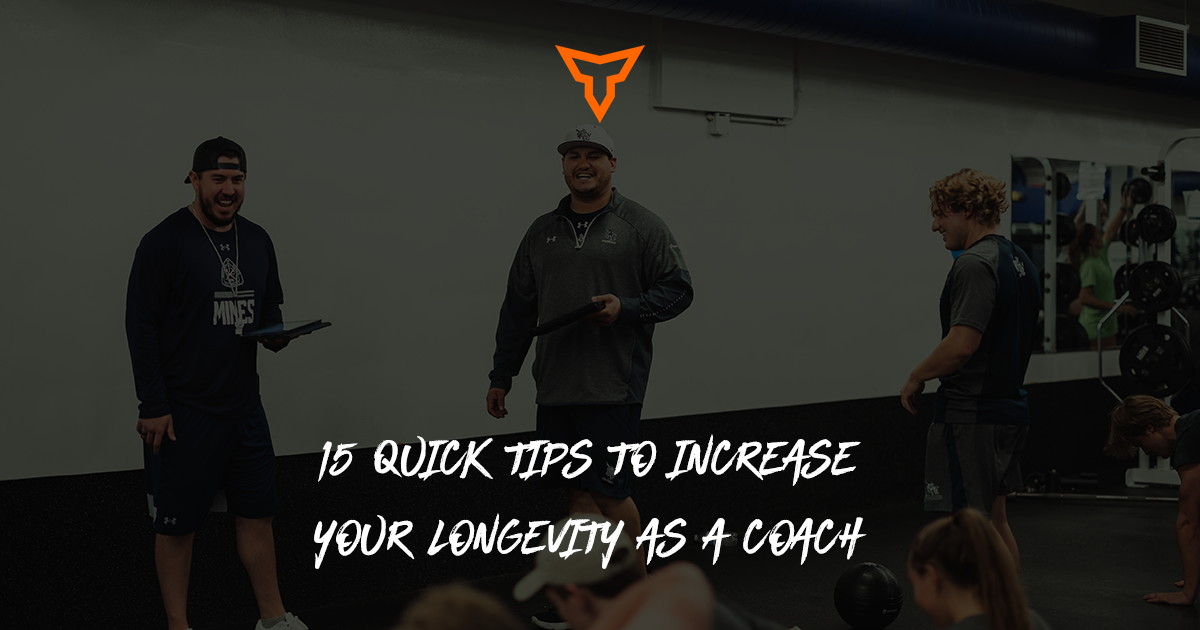Embracing Dual Roles as a Strength & Conditioning Coach
Working as a strength and conditioning coach in the collegiate setting often means being employed by the athletics department and working exclusively with the school's varsity sports teams. However, there are many instances in which the job description for a strength and conditioning coach expands beyond the programming and coaching in the weight room. This could include working as an athletic trainer (provided you have the certifications) or teaching course(s) in exercise science or a related field.
A dual role has immense value, especially for a coach getting their start in the field. It allows a coach to gain experience in various areas, including working with different people and having diverse responsibilities. I've found this to be true as I am in my second year in this exact kind of position, and it is my first full-time job as an S&C since finishing school. As an Assistant Strength and Conditioning Coach at Rensselaer Polytechnic Institute (RPI), I am responsible for programming for and coaching several of our varsity sports teams in our varsity athletic facility. This is the part of my job that most people think of when they think of being a strength and conditioning coach in the college setting. Additionally, I am responsible for the weight room in RPI's recreational facility that serves the entire student population. My role here includes writing programs for club sports teams and individual students and staff members, getting quotes and ordering new equipment, budgeting, running programs in collaboration with our Campus Recreation and Wellness Department, and assisting in overseeing and managing student employees. I have learned a few things during my one-and-a-half years in this position, and I'd like to highlight how the experiences of a dual position like this one can add value to a career in strength and conditioning and set coaches up for success later on.
Time Management
Having many responsibilities at two different locations on campus certainly requires above-average time management skills to ensure everything gets done. I'd be lying if I said I'm able to split my time 50/50 between the two perfectly. Still, I'm lucky to work with two sets of staff in both the Athletics Department and the Campus Recreation and Wellness Department who understand what my unique position requires and ensure that I am taking care of myself as well. Scheduling my day and planning helps keep me organized and on track. I know when I need to be in the varsity weight room for my team lifts - usually in the mornings and late afternoon/evening - and then I can be in the recreational weight room when the varsity weight room is quieter, typically in the middle of the day. While I spend more time in the varsity facility during the school year, I can spend much more time in the recreational weight room during the winter and summer breaks. Many coaches experience times of the year when there are more demands on their time and energy with different aspects of their lives and jobs requiring different levels of attention and focus, and my position is no different.
Working with Other Departments
Strength and Conditioning is increasingly adapting to the framework of a high-performance model, in which the S&C department works interdependently with sports coaches, athletic training staff, sports science staff, etc. This is crucial to athletes' health and well-being and maximizing individual and team performance. While I interact with individuals in these departments, I also work with departments outside of varsity sports. For example, I collaborate with Campus Recreation and Wellness to put on a lift-and-learn program where students of all experience levels can learn proper techniques and be exposed to the weight room, perhaps for the first time.
Gaining Experience for a Higher-Level Role Later On
Overall, the responsibilities associated with this dual role have allowed me to gain valuable experience that will set me up to move on to a higher-level position in the future. Taking on tasks such as requesting quotes from suppliers, ordering new equipment, getting old equipment fixed, assisting in the oversight of student employees, and being involved in the interview processes for various positions within Campus Recreation and Wellness are things that could typically be seen as duties for a Head Strength and Conditioning Coach, but having authority over our recreational weight room allows me to do them first-hand - which I view as a valuable addition to my resume.
Conclusion
It is rare that a coach just getting started in their career will land their dream job right away. It is positions such as the one I currently hold that help coaches gain experience, skills, and confidence that they can bring into their next job to be successful. As with any job search, it has to be the right fit to work, and a job description including or not including a dual role shouldn't be a deal breaker if it aligns with your short and long-term goals for your life and career.
Subscribe to our blog
Subscribe to receive the latest blog posts to your inbox every week.
Related posts

The Switch: Leaving College Strength & Conditioning

Jack of All Trades, Master of None in Coaching


